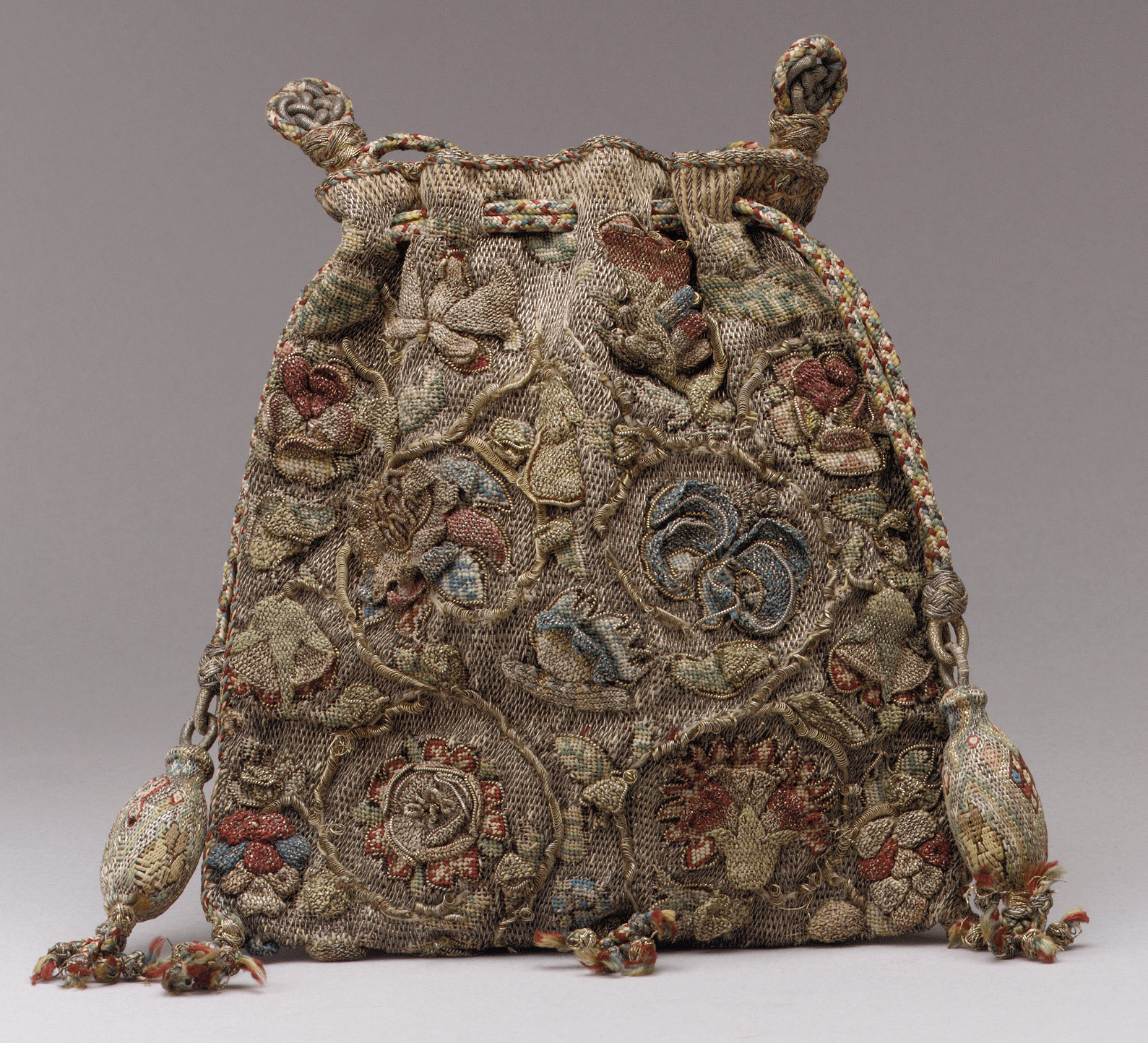 |
| English sweet bag, late 16th century, Met Museum |
In order to protect the backside of the embroidery I decided to line it in linen. The pattern is very simple, a long rectangle folded in the middle and sewn up the sides.
I sewed the sides together with backstitch and felled the seams.
I added four eyelets on each side, that I bound with buttonhole silk.
The top was folded down as well, so this is the inside of the bag.
On the outside I added a gold braid that I found in stash, both for the drawstring and for the string to carry th purse in. I also made three tassels from the last of the gold twist thread and soe black silk thread that I added to the bottom.
The gold braid gave the bag just a little bit of extra bling that it needed. The ends of the braid was frayed to create something more tassel like.
Here is the bag worn, by a totally non-historical gown. I would have preferred a longer string to carry it in, but it was simply all the string I had
What the item is: An Elizabethan sweet bag
How it fits the challenge: The base material is green
Material: 40 cm of green wool flannel, 40 cm of linen, gold thread in diferent varietys, natural pearls, glass beads
Pattern: I made my own
Year: ca 1570-1625
Notions: Silk buttonhole twist, polyester sewing thread
How historically accurate is it? This is more inspired and plausible than accurate. The motifs of the embroidery are all ound in 16th century sources, but it would probably have been made more with silk thread. I would say around 30%
Hours to complete: The embroidery probably two weeks or so, sewing the bag together 3 hours
First worn: Not yet
Total cost: Sample pack of gold threads $15, the rest was from stash but probably to a worth of another $10-15, so in total $25-30
Notions: Silk buttonhole twist, polyester sewing thread
How historically accurate is it? This is more inspired and plausible than accurate. The motifs of the embroidery are all ound in 16th century sources, but it would probably have been made more with silk thread. I would say around 30%
Hours to complete: The embroidery probably two weeks or so, sewing the bag together 3 hours
First worn: Not yet
Total cost: Sample pack of gold threads $15, the rest was from stash but probably to a worth of another $10-15, so in total $25-30







No comments:
Post a Comment